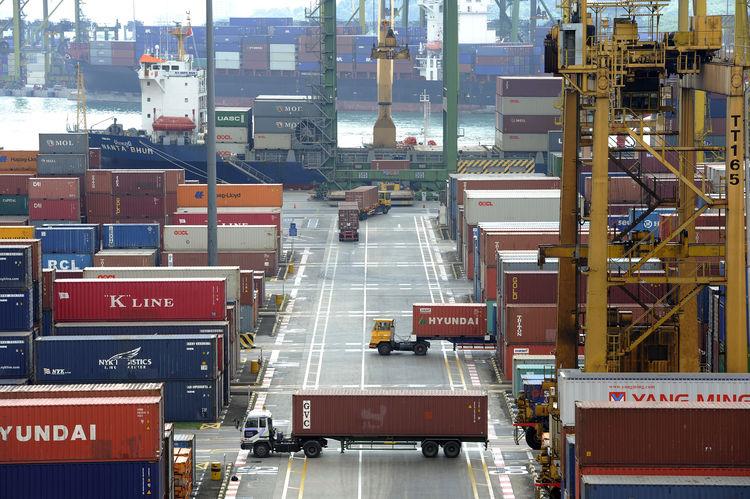- Govt Targets N30.5tn Revenue from Non-oil Export
The Federal Government is targeting annual non-oil export revenue of $100bn (about N30.5tn, at N305 per dollar exchange rate) through the implementation of the Zero Oil Plan.
The projection is contained in a document prepared by the Nigerian Export Promotion Council showing how the plan is to be implemented.
The Zero Oil Plan is NEPC’s strategy to replace oil as a major national foreign exchange earner by growing non-oil export to reach about 20 per cent of the country’s Gross Domestic Product.
According to the document, while non-oil products are still exported to key destinations around the world from Nigeria, the immediate priority of government is to concentrate on new export products where Nigeria can earn between 40 per cent and 50 per cent of what it earned from oil in the past.
Through the plan, NEPC has identified 22 priority countries as markets for Nigerian products while 11 strategic products with high financial value have also been identified to replace oil.
These products are palm oil, cashew, cocoa, soya beans, rubber, rice, petrochemical, leather, ginger, cotton and shea butter.
The document read in part, “Nigeria’s trade has been largely driven by exports of petroleum products, which contribute about 17 per cent to the nation’s GDP, signifying about 90 per cent of total merchandise exports and more than 65 per cent of government’s income.
“This revenue boom has been threatened by a sharp drop in the global price of oil particularly as a result of the United States, introduction of the shale oil leading to severe economic stress.
“NEPC’s vision is to replace oil as a major national foreign exchange earner by growing non-oil export to $30bn in the next 10 years and eventually to $100bn annually based on its Zero Oil Plan.”
The Executive Director/Chief Executive Officer, NEPC, Mr. Segun Awolowo, said if the country could effectively key into the plan of the commission in taking advantage of the opportunities in the agricultural sector, there would not be any need to depend on oil revenue for survival.
He said the volatility in the oil market had made it imperative for the government to look inwards, adding that Nigeria could no longer depend solely on oil revenue for implementation of government’s programme.
For instance, the NEPC boss said between 2014 and 2016, the country recorded a total oil revenue shortfall of $40bn.
He said in 2014, the country earned $70bn from crude oil, adding that oil receipts dropped to $40bn and $30bn in 2015 and 2016, respectively.
He said as a result of the volatile nature of the oil market, the country could no longer depend on such commodity, and needed to partner Nigerians in the Diaspora to diversify the economy.
He said, “In 2014, we had $70bn from oil; in 2015, it was $40bn; and you can see that we had a shortfall of $30bn.
“In 2016, it was about $30bn and so we can see that the challenge is not on really the demand for foreign exchange but the supply of foreign exchange.
“We are targeting manufacturing and industry so that we can produce and export more.”
He expressed optimism that the plan would achieve significant success if all stakeholders collaborated with the NEPC, noting that the ultimate goal of the agency was for Nigeria to survive in a world where it would no longer sell oil.

 Forex2 weeks ago
Forex2 weeks ago


 Naira1 week ago
Naira1 week ago
 Naira4 weeks ago
Naira4 weeks ago
 Company News4 weeks ago
Company News4 weeks ago
 Billionaire Watch1 week ago
Billionaire Watch1 week ago




 Naira2 weeks ago
Naira2 weeks ago




 Naira1 week ago
Naira1 week ago




 Naira3 weeks ago
Naira3 weeks ago






















